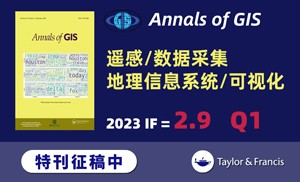当前位置:
X-MOL 学术
›
Biochem. Cell Biol.
›
论文详情
Our official English website, www.x-mol.net, welcomes your
feedback! (Note: you will need to create a separate account there.)
Reversal of P-glycoprotein-mediated multidrug resistance by novel curcumin analogues in paclitaxel-resistant human breast cancer cells.
Biochemistry and Cell Biology ( IF 2.4 ) Pub Date : 2020-01-22 , DOI: 10.1139/bcb-2019-0377 Lei Gao 1, 2 , Peiran Zhao 1 , Yang Li 1 , Dawei Yang 1 , Ping Hu 1 , Lianzhi Li 3 , Yufeng Cheng 2 , Hengchen Yao 4
Biochemistry and Cell Biology ( IF 2.4 ) Pub Date : 2020-01-22 , DOI: 10.1139/bcb-2019-0377 Lei Gao 1, 2 , Peiran Zhao 1 , Yang Li 1 , Dawei Yang 1 , Ping Hu 1 , Lianzhi Li 3 , Yufeng Cheng 2 , Hengchen Yao 4
Affiliation
Multidrug resistance (MDR) is a major obstacle for successful cancer chemotherapy, and the main cause of MDR has been attributed to overexpression of P-glycoprotein (P-gp). In this present study, four P-gp modulators (E,E)-4,6-bis(styryl)-2-(substituted amino)-pyrimidines were evaluated for their activity in a breast cancer cell line overexpressing P-gp (LCC6MDR). The four modulators displayed significantly better P-gp modulating activity compared with the positive control verapamil (RF = 5.4), with a relative fold (RF) increase in activity ranging from 33.3 to 86.0. In contrast to compounds a and c that exhibited lower cytotoxicity, compounds b and d were nontoxic towards both cancer cells and normal cells, with IC50 values greater than 100 μmol/L. The qRT-PCR results demonstrated that after exposure to 2 μmol/L of compounds a, b, c, and d, the mRNA expression level of MDR1 in LCC6MDR cells decreased to 45%, 50%, 38%, and 51%, respectively. However, the Western-blot results indicated that compound c could reverse P-gp mediated MDR, but not via decreases in protein expression. DOX and Rh123 accumulation and efflux results further confirmed that the reversal of MDR activity happens via inhibition of P-gp efflux and increases in intracellular drug accumulation. These results demonstrated that compound c has low toxicity and is an efficient P-gp modulator, highlighting its potential as a promising candidate for P-gp-mediated reversal of MDR.
中文翻译:

新型姜黄素类似物在耐紫杉醇的人乳腺癌细胞中逆转P-糖蛋白介导的多药耐药性。
多药耐药性(MDR)是成功进行癌症化疗的主要障碍,并且MDR的主要原因是P-糖蛋白(P-gp)的过度表达。在本研究中,评估了四种P-gp调节剂(E,E)-4,6-双(苯乙烯基)-2-(取代的氨基)-嘧啶在过表达P-gp(LCC6MDR)的乳腺癌细胞系中的活性)。与阳性对照维拉帕米(RF = 5.4)相比,四种调节剂显示出明显更好的P-gp调节活性,活性的相对倍数(RF)增加,范围为33.3至86.0。与表现出较低细胞毒性的化合物a和c相比,化合物b和d对癌细胞和正常细胞均无毒,IC50值大于100μmol/ L。qRT-PCR结果表明,暴露于2μmol/ L的化合物a,b,c和d后,LCC6MDR细胞中MDR1的mRNA表达水平分别降至45%,50%,38%和51%。但是,Western-blot结果表明化合物c可以逆转P-gp介导的MDR,但不能通过蛋白质表达的降低来逆转。DOX和Rh123积聚和外排结果进一步证实,MDR活性的逆转是通过抑制P-gp外排和增加细胞内药物积聚而发生的。这些结果证明化合物c具有低毒性,并且是有效的P-gp调节剂,突出了其作为P-gp介导的MDR逆转的有希望的候选者的潜力。DOX和Rh123积聚和外排结果进一步证实,MDR活性的逆转是通过抑制P-gp外排和增加细胞内药物积聚而发生的。这些结果证明化合物c具有低毒性,并且是有效的P-gp调节剂,突出了其作为P-gp介导的MDR逆转的有希望的候选者的潜力。DOX和Rh123积聚和外排结果进一步证实,MDR活性的逆转是通过抑制P-gp外排和增加细胞内药物积聚而发生的。这些结果证明化合物c具有低毒性,并且是有效的P-gp调节剂,突出了其作为P-gp介导的MDR逆转的有希望的候选者的潜力。
更新日期:2020-01-22
中文翻译:

新型姜黄素类似物在耐紫杉醇的人乳腺癌细胞中逆转P-糖蛋白介导的多药耐药性。
多药耐药性(MDR)是成功进行癌症化疗的主要障碍,并且MDR的主要原因是P-糖蛋白(P-gp)的过度表达。在本研究中,评估了四种P-gp调节剂(E,E)-4,6-双(苯乙烯基)-2-(取代的氨基)-嘧啶在过表达P-gp(LCC6MDR)的乳腺癌细胞系中的活性)。与阳性对照维拉帕米(RF = 5.4)相比,四种调节剂显示出明显更好的P-gp调节活性,活性的相对倍数(RF)增加,范围为33.3至86.0。与表现出较低细胞毒性的化合物a和c相比,化合物b和d对癌细胞和正常细胞均无毒,IC50值大于100μmol/ L。qRT-PCR结果表明,暴露于2μmol/ L的化合物a,b,c和d后,LCC6MDR细胞中MDR1的mRNA表达水平分别降至45%,50%,38%和51%。但是,Western-blot结果表明化合物c可以逆转P-gp介导的MDR,但不能通过蛋白质表达的降低来逆转。DOX和Rh123积聚和外排结果进一步证实,MDR活性的逆转是通过抑制P-gp外排和增加细胞内药物积聚而发生的。这些结果证明化合物c具有低毒性,并且是有效的P-gp调节剂,突出了其作为P-gp介导的MDR逆转的有希望的候选者的潜力。DOX和Rh123积聚和外排结果进一步证实,MDR活性的逆转是通过抑制P-gp外排和增加细胞内药物积聚而发生的。这些结果证明化合物c具有低毒性,并且是有效的P-gp调节剂,突出了其作为P-gp介导的MDR逆转的有希望的候选者的潜力。DOX和Rh123积聚和外排结果进一步证实,MDR活性的逆转是通过抑制P-gp外排和增加细胞内药物积聚而发生的。这些结果证明化合物c具有低毒性,并且是有效的P-gp调节剂,突出了其作为P-gp介导的MDR逆转的有希望的候选者的潜力。









































 京公网安备 11010802027423号
京公网安备 11010802027423号